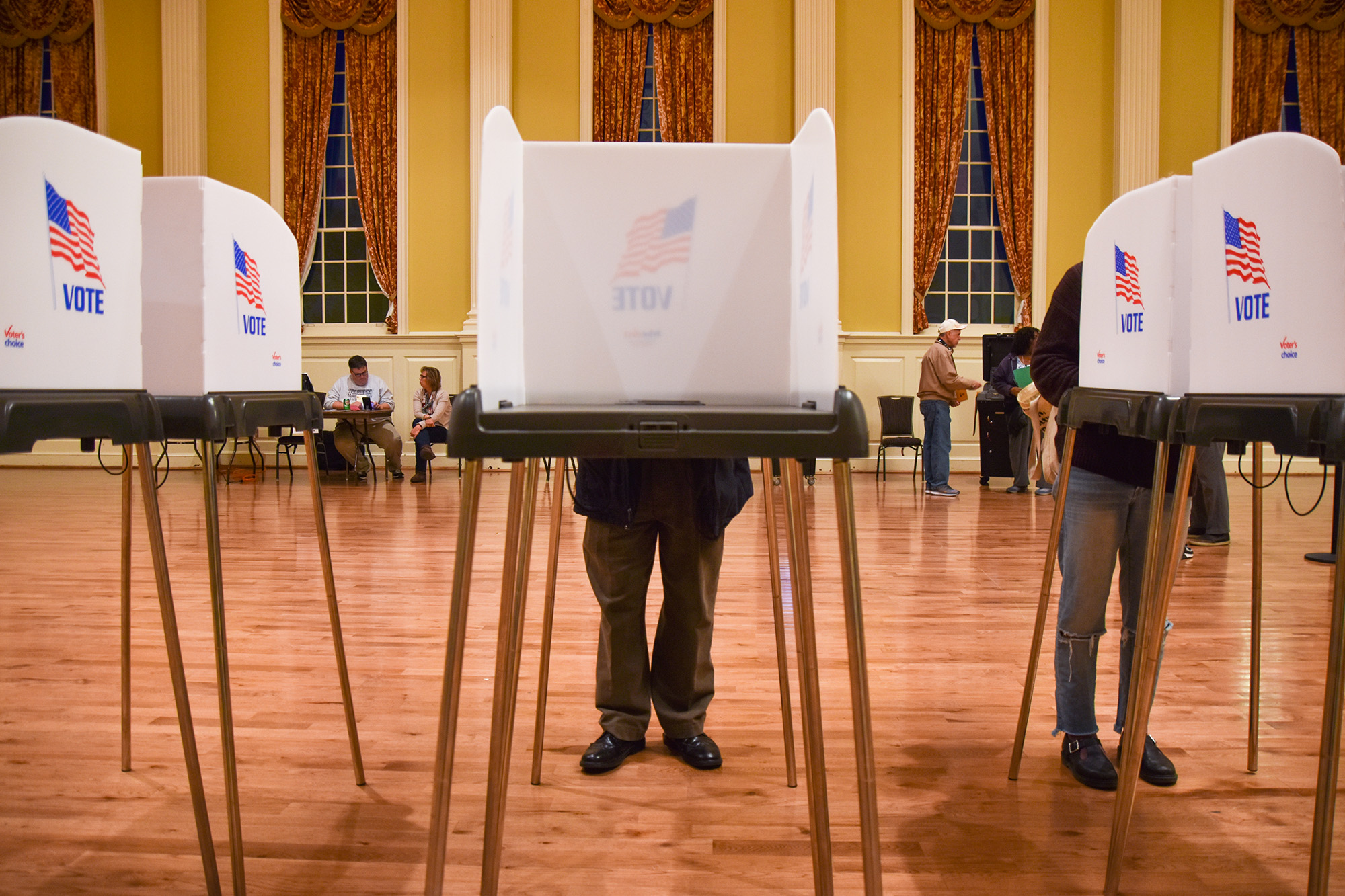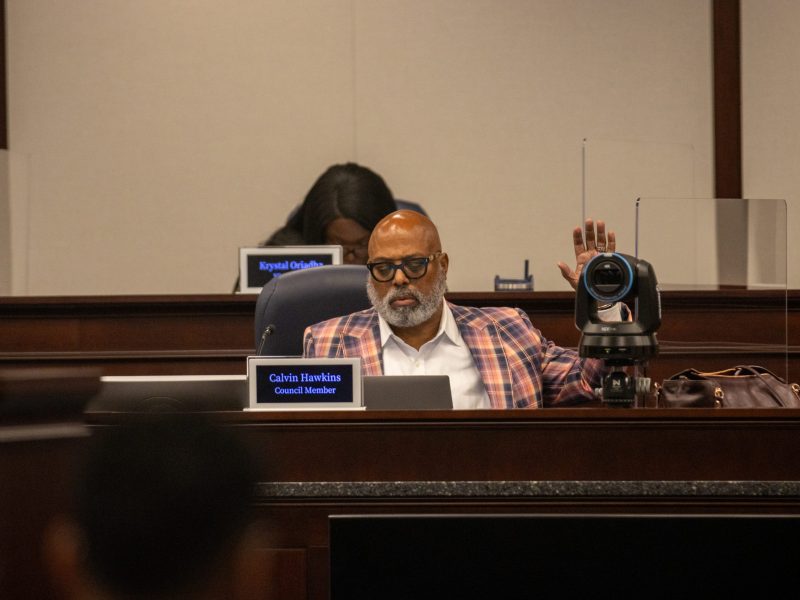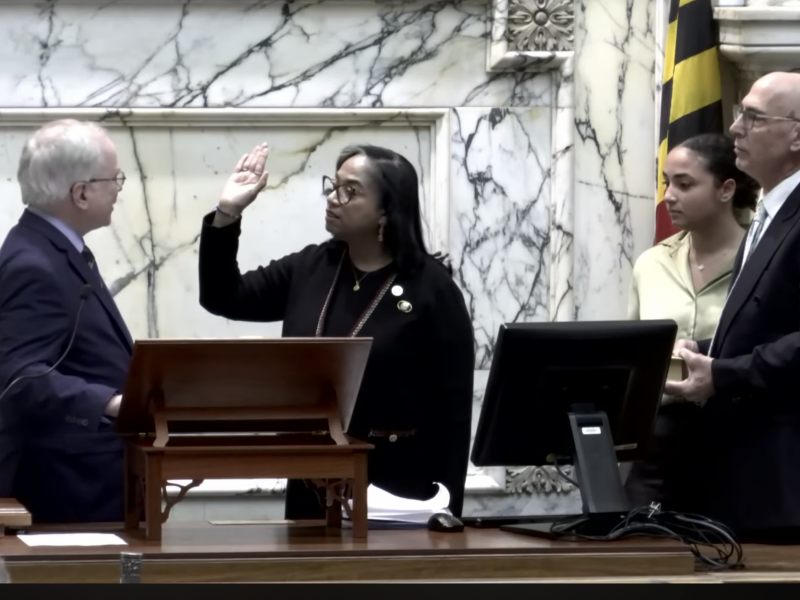Members of the University of Maryland community testified before the House of Delegates on Thursday, lobbying for a bill that aims to increase student voter participation.
The Student Voter Empowerment Act proposes that both public and private universities with 4,500 or more students have a polling location on campus. It would also require community colleges and public universities to designate a staff member as a “student voting coordinator.” That person would be tasked with creating a “student voting plan” to help students prepare to cast their ballots.
House Majority Leader Eric Luedtke (D-Montgomery), also a professor in the university’s public policy school, is one of the sponsors of the bill. He taught middle school for many years before moving on to teach freshmen at the college level — and many of his students, he said, would come to him with basic questions about things like voter registration and requesting an absentee ballot.
“Young people want to be engaged, they want to be involved in this process,” Student Government Association president Ireland Lesley told lawmakers during the hearing. “Support by our universities [and] by the state really invest in that education, which is so critical.”
[Read more: Some UMD students say loan forgiveness plans will factor heavily in their 2020 vote]
While this university already provides students with polling locations at the Stamp Student Union and Ritchie Coliseum, multiple universities around the state do not.
In the 2018 midterm election, among 18- to 29-year-olds nationwide, voter turnout jumped to nearly 36 percent, up from about 20 percent four years prior. While voter turnout in this age range increased, it was still lower than any other age group. In the same election, 66.1 percent of people ages 65 and over voted, according to the U.S. Census Bureau.
From 2014 to 2018, Lesley said, this university’s student voter registration rate increased to just over 85 percent — but its voter turnout rate is still hovering around 46 percent.
“We are blessed at the University of Maryland to have a lot of these policies already in place,” Lesley said. “There is a lot of room for growth.”
While more than 10 people spoke in favor of the bill, several attendees proposed amendments, too.
Del. Jason Buckel (R-Allegany) questioned whether it was necessary for campuses that have a precinct close by to establish a new one solely for students’ benefit.
There are more senior citizens registered to vote than there are young people, he added, arguing it might make more sense to invest in voting centers near senior centers for people who can’t walk far to a polling place. Local governments, he said, should be responsible for determining where new polling places are established.
“One size doesn’t fit all,” Buckel said. “My concern is that we’re taking one particular group of potential voters and creating all these special things.”
[Read more: Richard Collins’ family will take to Annapolis next week in push for hate crime law reform]
Another provision of the bill would excuse absences for students who miss class to vote. Patrick Nicholas Hogan, a former member of the House of Delegates, and Bryan Newton, vice president for enrollment management and student services Wor-Wic Community College, both spoke against that idea at the hearing.
Though both men supported the bill, they were concerned with taking away from instructional time. Newton highlighted that many students have long commutes — meaning that skipping class to vote could mean missing the whole day.
Sara Fidler, president of the Maryland Independent College and University Association, was concerned that certain universities in her association would have trouble implementing a polling location. At Loyola University Maryland, for example, it would be difficult to establish a precinct due to space and parking issues, she said.
“We would like to see the trigger for the requirement for polling place on campus to start with an undergraduate population of 4,500 students, instead of a total population, and that would solve that problem for us,” she said.
The hearing for the Senate equivalent of the bill, Senate Bill 0647, is set for Feb. 20, at 1 p.m.
“I believe that this bill and the policies within are helping support a historically disenfranchised community from voting and also is helping support what we hope will become lifelong habit,” said Annie Rappeport, president of the Graduate Student Government.



